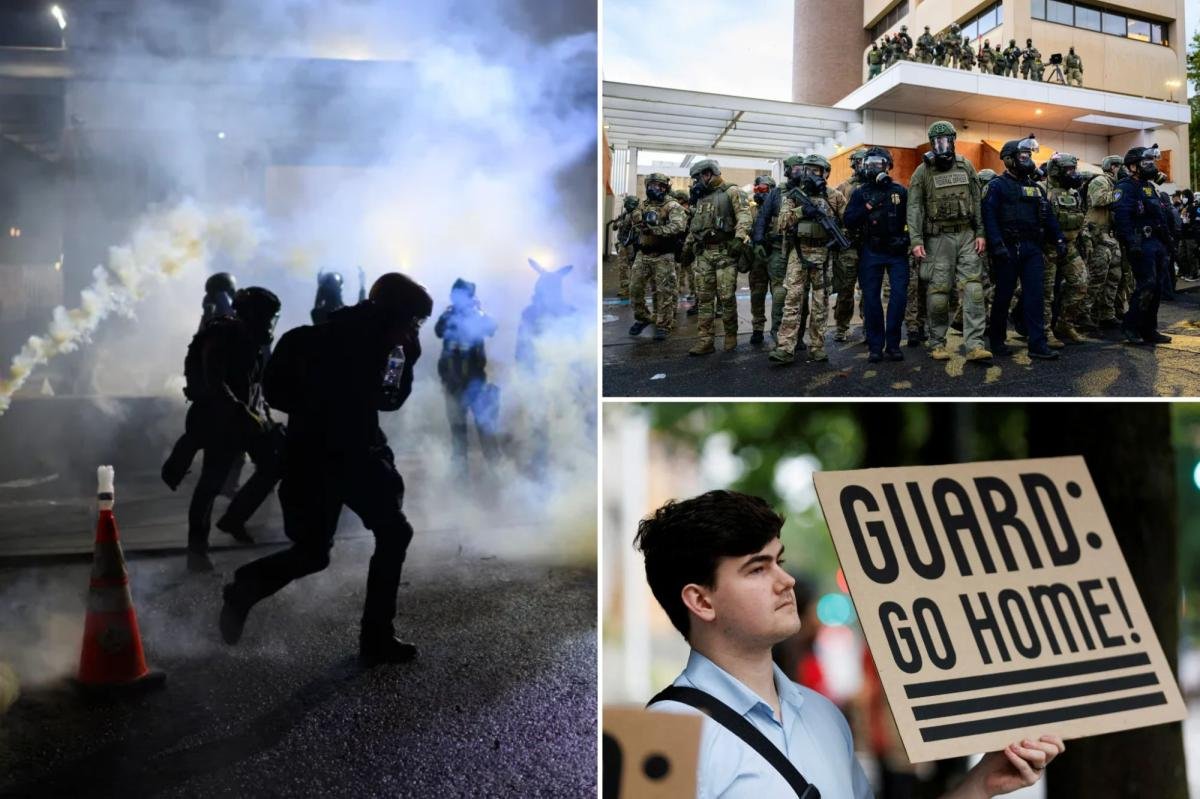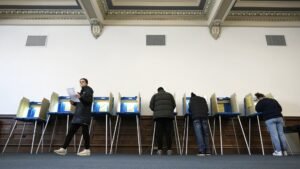
The Ninth Circuit Court ruled that Trump can deploy the National Guard to Portland

The US Ninth Circuit Court of Appeals ruled on Monday that President Donald Trump can Oregon National Guard deployed to PortlandThis was a major victory for the Trump administration as it continues its efforts to send federal troops to Democratic-led cities despite a recent series of setbacks in other district and appeals courts.
The justices on the three-member panel ruled by a 2-1 majority to allow Trump’s deployment. Judge Ryan Nelson and Judge Bridget Budd, both Trump appointees, sided with the administration in the majority ruling, while the lone Clinton-appointed judge, Susan Graber, dissented.
“After considering the record at this preliminary stage, we conclude that it is probable that the President lawfully exercised his statutory authority under 10 USC § 12406(3), which permits the federalization of the National Guard when the President is unable with regular forces to enforce the laws of the United States,” the majority said.
The move became a political flashpoint Protesters opposed to his key policies She clashed with law enforcement. Oregon officials and civil liberties groups say the administration is exaggerating the threat, while Trump allies insist the Guard is needed to restore order.
After a federal judge in Oregon temporarily blocked Trump’s attempt to deploy troops in Portland earlier this month, the US Ninth Circuit Court of Appeals agreed to hear the Trump administration’s appeal.
The lower court judge called Trump’s action in her emergency order “out of touch with reality,” an action she said risked “blurring the line between civilian and military federal authority — to the detriment of this nation.”
The appeals court quickly stayed the lower court’s order pending review.
The ruling comes as Trump sought Deploying hundreds of National Guard troops to Democratic-led cities Despite vocal opposition from local and international leaders. Senior administration officials have argued the deployment is a necessary step to stem what they say is an uptick in violent crime and protect against threats from protesters, including anti-ICE demonstrations in several downtown areas.
Democrats countered that Trump’s descriptions were exaggerated and inaccurate, and that they were merely a legal excuse for Trump to try to “federalize” Democratic-led cities. They have used news conferences to highlight the decline in violent crime, and have argued in court that efforts to deploy federal troops exceed Trump’s authority as commander-in-chief.
Until the matter is appealed to the Supreme Court, the burden remains on lower courts to deal with the wave of high-profile and politically thorny cases.
Another federal appeals court also heard this dispute. On Saturday, the 7th U.S. Circuit Court of Appeals in Chicago partially lifted a lower court order blocking Trump’s federal deployment of National Guard troops, though the decision stopped short of authorizing their use and instead allowed them to remain at a U.S. Army Reserve base outside the city.
In Oregon, the 9th U.S. Circuit Court of Appeals held about 90 minutes of arguments on the department’s appeal. Trump administration officials have said the troop presence is necessary to quell the escalating unrest and protect against the risk of future violence.
The justices on the three-member panel appeared largely sympathetic to the Trump administration, especially the two Trump appointees, who noted that presidents have broad latitude to deploy the National Guard.
“Troops may have been used inappropriately, but we have no evidence of that,” Judge Ryan Nelson, a Trump appointee, said during oral arguments.
Trump’s decision to call in the military “does not strike me as a gross overuse,” he said.
Otherwise, the committee majority did little to hide its skepticism of arguments made by Oregon Assistant Attorney General Stacey Chafin — including that Trump’s assessment of the violence in the city did not justify federalizing the National Guard.
Chafin argued that the protests in Portland are far from the definition of “insurrection” — one of two conditions Trump needs to meet the legal pretext for deploying the National Guard.
Chaffin said insurgencies “are unusual and extreme emergencies.” She pointed out that the bulk of complaints submitted by local agents focus on the small number of employees they have. She said administrative or personnel concerns “are no reason to bring the military onto the streets of Portland or any other American city.”
However, the court appeared ready to side with the Trump administration.
“I’m not sure that even President Lincoln would have been able to authorize the use of force right now” if his actions had been scrutinized under the “more stringent standard of review” that Oregon cited here, Nelson noted shortly before the court adjourned.
The Ninth Circuit is one of several appeals courts that have considered Trump’s plan to send National Guard troops to Democratic-led cities in recent weeks.
The Trump administration on Friday asked the Supreme Court to intervene and block a 7th Circuit ruling that, for now, bars it from sending National Guard troops to Chicago.













Post Comment